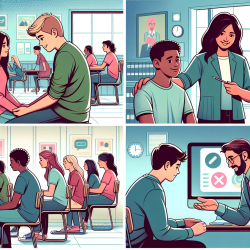As the demand for telecare services continues to rise, healthcare professionals must adapt to new methods of delivering care. A recent study, "Perceptions of telecare training needs in home healthcare services: a focus group study," offers valuable insights into the training needs of healthcare professionals for effective telecare practice. Here, we will discuss how practitioners can implement these findings to improve their telecare skills and outcomes.
Key Findings from the Study
The study involved six focus group interviews with 26 participants, including registered nurses, physiotherapists, and social workers, among others. The data were analyzed to identify key training needs, resulting in five main categories:
- Purposeful Training Creates Confidence and Changes Attitudes: Effective training should be relevant and purposeful, helping to build confidence and positive attitudes towards telecare.
- Training Needs Depend on Ability to Cope with Telecare: Training should be tailored to the individual abilities of healthcare professionals and patients.
- The Timing of Training: Training should be scheduled close to the time of implementation to ensure retention and application of new skills.
- Training Must Facilitate Practical Insight into the Patient's Perspective: Hands-on training, including simulation, can help practitioners understand the patient's experience.
- Training Content Must Focus on the Telecare Process: Comprehensive training should cover technical skills, communication techniques, and ethical considerations.
Implementing the Findings
Based on these findings, here are some actionable steps for practitioners:
- Develop Purposeful Training Programs: Create training modules that are specific to the tasks and technologies used in telecare. This will help build confidence and foster positive attitudes.
- Tailor Training to Individual Needs: Assess the varying abilities of staff and patients to tailor training programs accordingly. This could include additional sessions for those who need more support.
- Schedule Training Close to Implementation: Ensure that training sessions are held close to the time when new technologies or methods will be used to maximize retention and application.
- Incorporate Hands-On Training: Use simulation and other practical training methods to give healthcare professionals a real-world understanding of telecare from the patient's perspective.
- Focus on Comprehensive Content: Include training on technical skills, communication techniques, and ethical considerations to ensure well-rounded telecare practice.
Encouraging Further Research
While this study provides valuable insights, more research is needed to explore the diverse training needs of healthcare professionals across different settings. Practitioners are encouraged to engage in continuous learning and research to stay updated on best practices in telecare.
To read the original research paper, please follow this link: Perceptions of telecare training needs in home healthcare services: a focus group study.










